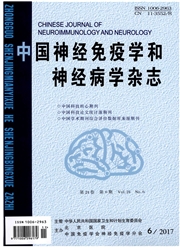

 中文摘要:
中文摘要:
目的探讨问题式教学法结合病案式教学法对神经内科学生临床思维能力的影响。方法选取2014年9月~2015年7月在首都医科大学宣武医院实习的首都医科大学临床医学专业学生92名为研究对象,采用随机数字表法将其分为对照班和实验班,每个班级各46名。对照班采用传统教学方法,实验班采用问题式教学法结合病案式教学法。比较两个班级学生的考试成绩、学习能力、临床思维能力、教学模式认可度及满意度。结果实验班学生神经内科考试理论成绩、神经系统体格检查、病案分析、总成绩均显著高于对照班(均P〈0.05);实验班学生学习主动性、沟通能力、合作能力、观察分析能力、自我管理能力评分均明显高于对照班(t=4.180、2.247、2.219、3.269、2.273,均P〈0.05);实验班学生在病史采集、查体熟练程度、疾病信息整合、诊断与鉴别诊断能力、诊疗计划的制订、临床思维能力、查阅文献能力方面评分均明显高于对照班(t=7.570、5.799、5.426、4.052、6.185、5.648、5.439,P〈0.05或P〈0.01);实验班学生对激发学习兴趣、启迪临床思维、增强沟通能力、提高学习效果的认可度明显高于对照班(χ^2=4.039、7.180、4.979、6.035,均P〈0.05);实验班学生满意度(91.30%)明显高于对照班(76.09%)(χ^2=3.093,P〈0.05)。结论问题式教学法结合病案式教学法能激发学生学习兴趣,促进学生自觉主动地学习,提高学生临床思维能力。
 英文摘要:
英文摘要:
Objective To discuss the effect of problem-based learning combined with case-based learning on clinical thinking ability of neurology students. Methods Ninety-two clinical medical students in Capital Medical University and practiced in Xuanwu Hospital, Capital Medical University from September 2014 to July 2015 were selected as the study objects, and they were divided into control class and experimental class by random number table. The control class was received traditional learning and the experimental class was given problem-based learning combined with case-based learning. Test scores, learning ability, clinical thinking ability, recognition and satisfaction of two classes were compared. Results Theoretical test scores of neurology, physical examination of the nervous system, case study and total scores of the experimental class were all significantly higher than those of the control class(all P〈 0.05);scores in learning initiative, communication ability, cooperative ability, observation and analysis ability and self-management ability of the experimental class were all significantly higher than those of the control class(t = 4.180, 2.247,2.219, 3.269, 2.273, all P〈 0.05); scores in history-taking, physical examination proficiency, disease information integration, diagnosis and differential diagnosis ability, assessment and plan establishment, clinical thinking ability and literature-consulting ability of the experimental class were significantly higher than those of the control class(t = 7.570,5.799, 5.426, 4.052, 6.185, 5.648, 5.439, P〈 0.05 or P 0.01); recognition in stimulating studying interest, enlightening clinical thinking, enhancing communication ability and improving studying effect of the experimental class were significantly higher than those of the control class(χ^2=4.039, 7.180, 4.979, 6.035, all P〈 0.05); satisfaction of the experimental class(91.30%) was significantly higher than that of the control class(76.09%)(χ^2=3.093, P〈 0.05). Conclusion Problem-b
 同期刊论文项目
同期刊论文项目
 同项目期刊论文
同项目期刊论文
 期刊信息
期刊信息
